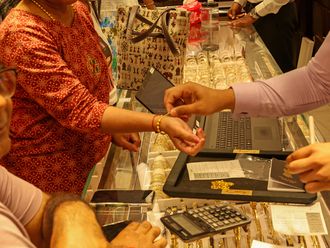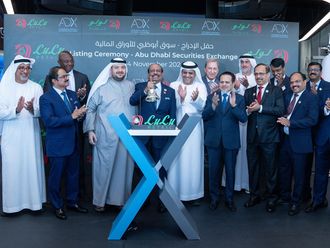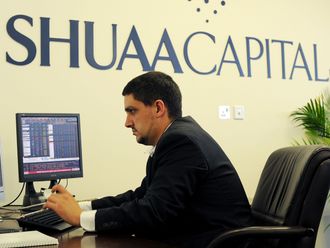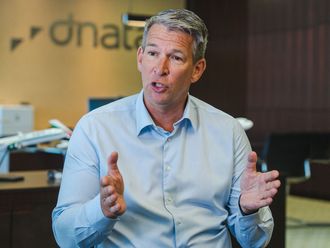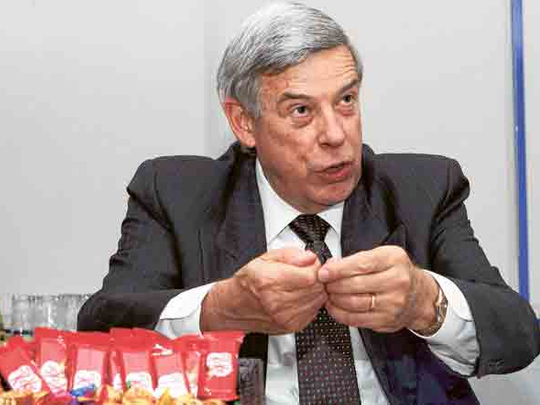
Dubai: The year is going to end on a bitter-sweet note for the world's chocolate industry. With the UN and the EU stepping in, there is a new urgency to resolve simmering political tension in Ivory Coast, the African country which accounts for a third of the world's cocoa shipments.
The crisis in Ivory Coast led to the rise in global cocoa prices, which is in turn hurting the chocolate industry's gross margins. Now if the renewed efforts to broker some sort of deal in the country bear fruit, that would be something to savour.
If it doesn't, the prospects are for a civil war to break out with bitter consequences for all stakeholders. Global markets are not discounting any possibility as cocoa prices soared to four-month highs in the March contracts taken earlier this month.
For Frits Van Dijk, executive vice-president at Nestle, the world's largest food company and maker of the hugely popular Kit Kat chocolate brand, such uncertainties are a way of life in his industry.
"There will be pressure on raw material costs," he said. "With the current challenges on the political situation, the markets get nervous, costs are going up, the farmers [in Ivory Coast] are not sending the cocoa to the harbour."
If uncertainties escalate, would 2011 be a lost year for chocolate makers? "I don't think it's going to be a lost year, it's way too early to say that," said Dijk, who was in Dubai recently for the opening of a new Nestle plant in Jebel Ali. It is also the third largest Kit Kat facility in the Swiss giant's network.
"We have been dealing with political disturbances and their impact in such markets before. The whole strategy of Nestle has always been to keep safety stocks.
"But if the situation continues for one year, who knows. It could then turn out to be a lost period. I truly hope in the case of Ivory Coast there will be enough political will to resolve it. Its neighbours are asking for a solution and hopefully something would materialise."
Beyond the concerns over Ivory Coast and what it does to cocoa prices, Dijk says the global food and beverage industry has seen its share of crises in recent times.
"The volatility of raw material prices started in 2007 when we had the so called food crisis," he said. "Prices went up for wheat, rice, coffee and dairy products.
"In fact, dairy prices went from $2,000 (Dh7,340) to $5,200 (Dh19,084) a tonne, and it did come down subsequently. Yet, the volatility is continuing.
"I am not too optimistic that we will see a change soon. This has partly to do with world demand. The emerging markets are all growing with GDP growth from 4 to 10 per cent. The African continent is growing at 6 per cent. No one realises that. Hundreds of millions of new consumers are coming from subsistence and can now afford basic manufactured products for the first time. This is causing the tremendous demand for raw materials."
Cocoa crisis
Would the cocoa crisis now force the manufacturers' hands and lead to higher retail prices for chocolates? "If it continues, there may have to be some changes," the Nestle official said. "But the moment the raw material prices subside, retail prices will reflect that. It has happened before.
"The Nido prices in 2007-08 saw sizable increases, but in early 2009, we significantly reduced it when dairy prices finally came down. That's the nature of the beast. In agriculture, that's how it works." Nestle has also been sourcing cocoa from Ghana and increasingly from Indonesia.
Meanwhile, the Dh500 million plant in Dubai will have a central role in feeding markets in the region and Africa. The emerging markets are where Nestle projects the highest growth to come from in the medium term.
"The reason why we selected Dubai was it's easy to import raw materials and export the finished goods," said Dijk. "More and more, we are looking at a supply chain whereby we invest in smaller plants in different countries. In F&B [Food and Beverage], if you have a lot of inter-market supplies, you have a lot of logistical barriers, you have trade barriers. Also, if you can produce locally, you have a fresher product.
"In the emerging markets we are talking growth of 10 per cent. It means big volumes and that's why we need to invest in additional capacity and product innovation. "A plant like this in Dubai is really meant for large export operations. At the same time, we are looking at finishing factories.
"We just completed the studies for Africa, where we will have six factories. Two or three plants will be fed from here. I can foresee plant-related investments in Saudi Arabia, where we have only one today. There are opportunities in the Lower Gulf countries too."
Production: Plant to open in Dubai
The new Kit Kat factory in Dubai will create brand extension possibilities for Nestle and help it take a bigger bite of the region's chocolate market.
"This plant is predominantly producing for the region and we have all kinds of ideas on how to move products upwards and downwards," said Frits Van Dijk. "When prices are going up, you lose some consumers. We are doing more work on catching those consumers who are trading down, retain them with a similar product, but not of the same quality. We already do that with our milk products all around the world.
"I am a great believer in having a multi-tier [product] strategy. You have to make sure that in case of economic difficulties or raw material volatility, you have the products which can catch the consumer trading down. At the same time, you need products at the top of the pyramid.
"That will come. We now have this facility in the Middle East. Earlier we were dependent on the UK and South Africa. To develop new products at such long distances is a big challenge."
Acquisitions of regional brands could represent another opportunity to grow the business. In fact, globally, the food and beverage industry has seen a string of consolidations. "Acquisitions [of regional brands] can always happen; it depends on the environment, the needs," said Dijk.
"These regional players too play their market in growing the market. And they keep us on our toes. A few years ago we made some acquisitions in China and these were a very useful addition to our portfolio."




